When brands mess up, word travels fast. Revolve learned this lesson the hard way after an image of one of its shirts went viral on Twitter.
The controversy first gained attention after artist/activist Florence Given tweeted out a screenshot of a thin model donning a sweatshirt that reads "Being fat is not beautiful, it's an excuse" from Revolve's website.
As you can imagine, people were beyond outraged. Tweets immediately started streaming in slamming the brand for carrying the obviously offensive sweatshirt. The backlash was enough for Revolve to pull the shirt, but the damage was already done. The brand has been deemed "canceled" by influencers all over the internet who can't quite understand what sort of reaction Revolve thought this shirt would receive.
The brand has tried to explain its side of things, maintaining that the shirts were part of a larger line intended to bring awareness to the issue of cyberbullying by printing body-shaming quotes from internet trolls on clothing. Actress Lena Dunham, who was behind the line and knew the origin of the quote to be an insult directed at plus-sized model Paloma Elsesser, has since withdrawn her support.
It all started when Florence Given, a London-based artist and activist, spotted this piece on Revolve's website. She took to Instagram to share the offensive image and condemn the website and manufacturer.
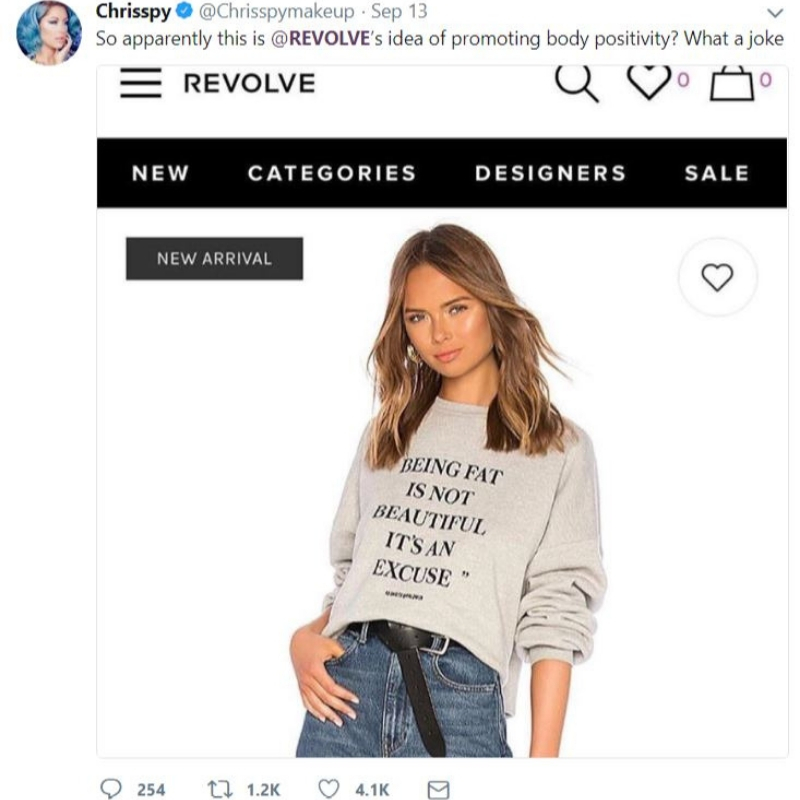
Once word got out, influencers came out and slammed the brand not only for the concept of the sweatshirt but also for the fact that the site chose to put it on a thin model, adding insult to injury.
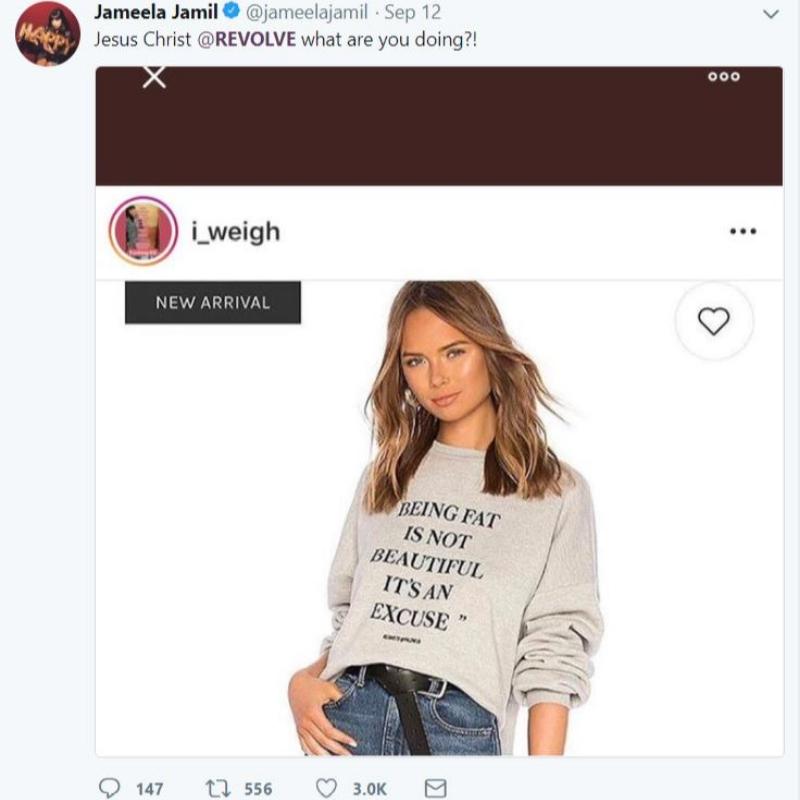
While many clothing brands have made strides in their efforts to be more inclusive, this sweatshirt reminded people of how much progress is still needed.
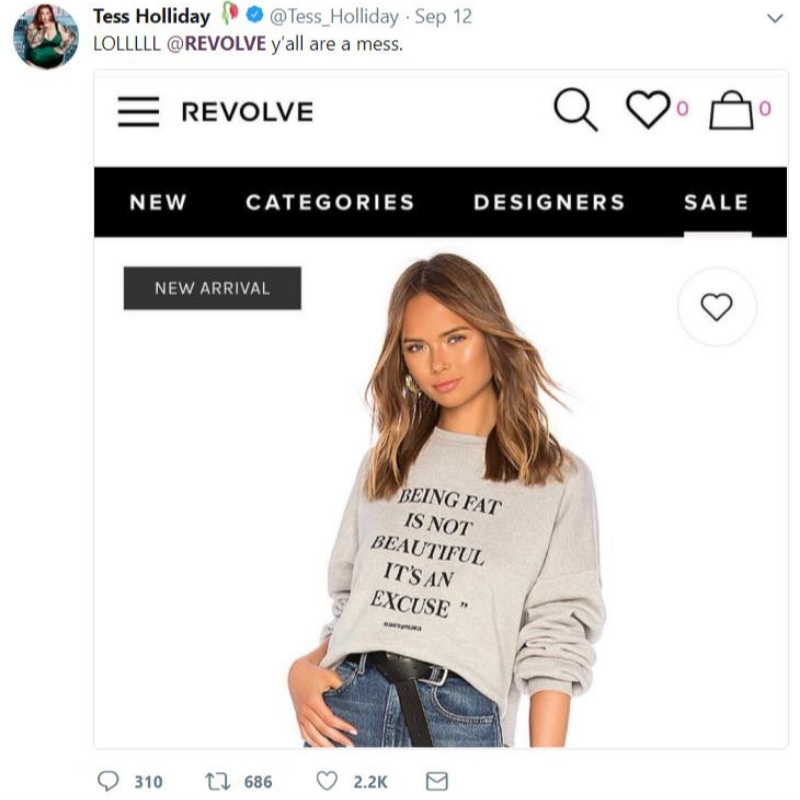
Influential plus-size model Tess Holliday couldn't help but laugh at what a mess it all was, from beginning to end.
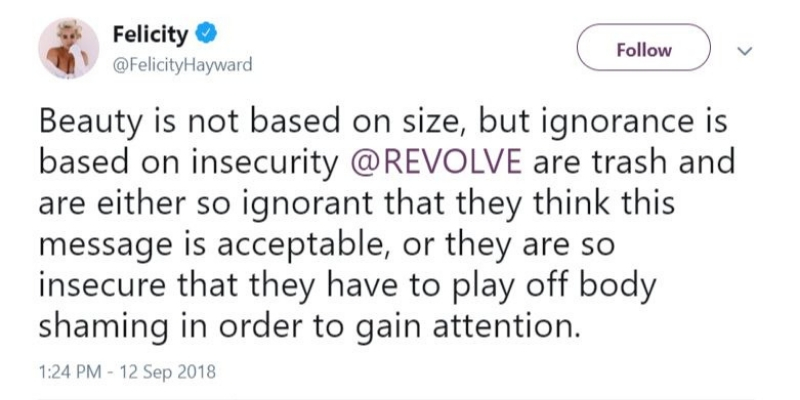
Many of the influencers who shared their opinions on the piece didn't understand how Revolve expected a positive reception for the sweatshirt.
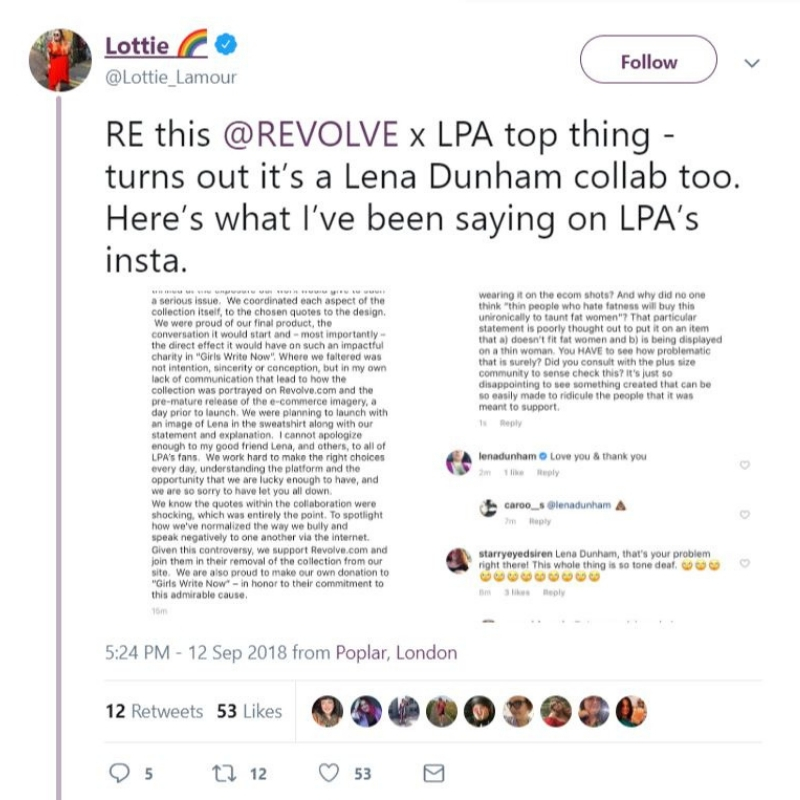
The plot thickened when people recognized that Lena Dunham was involved in the line. Lena tries to be a champion for women's causes, but often not without controversy.
Many wondered why Lena would have gotten involved with a brand that hasn't exactly been a shining example of inclusivity.
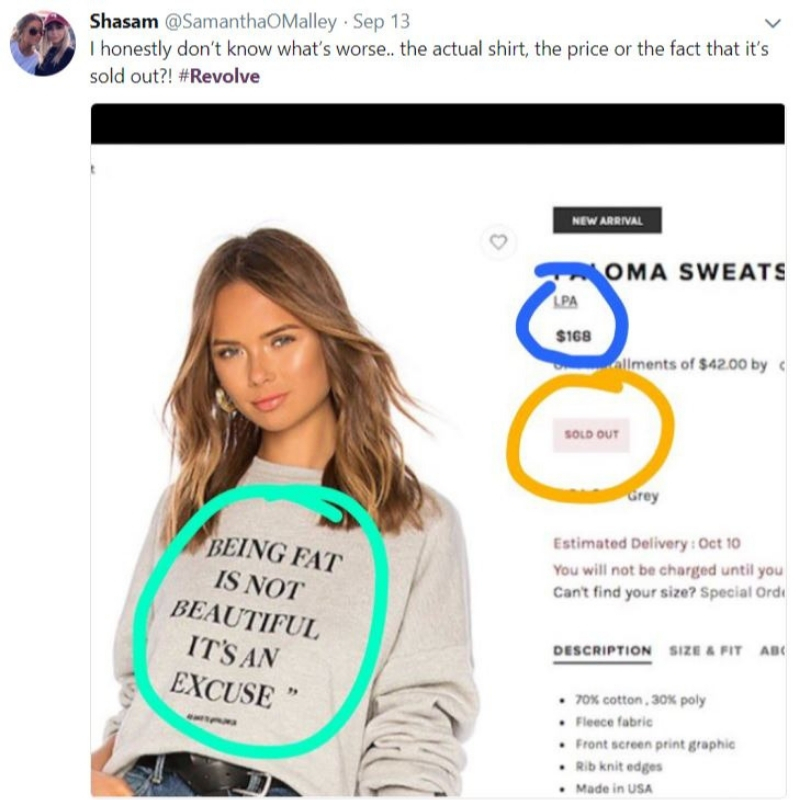
As more fans found out about the snafu, they sussed out more problematic things. Take, for example, that the sweatshirt wasn't just offensive, but expensive.
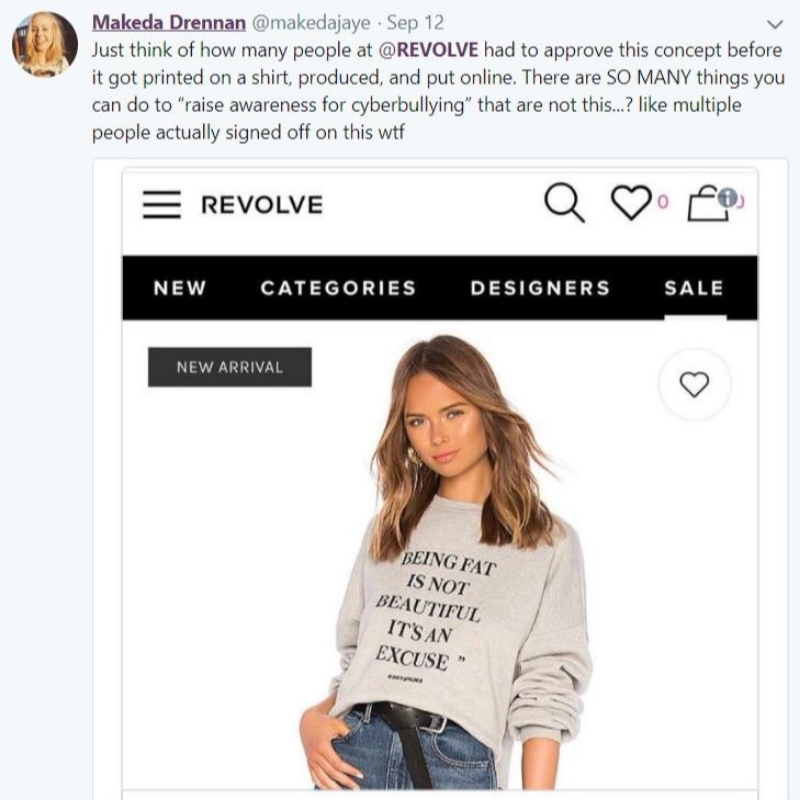
People wanted answers, and things weren't going to settle down until they got them.
Revolve responded to the backlash swiftly with a lengthy statement explaining that the sweatshirt image was uploaded to the site ahead of the release of the entire collection, by designer LPA.
Lara Pia Baroncini, creative director of LPA, posted a video on her Instagram explaining that the sweatshirt was part of a collaboration between LPA and several celebs. The premise was to reclaim internet troll hate comments to raise awareness of cyberbullying.
Lena followed up with an explanation of her own, expressing disappointment that the vision was poorly executed and pulling her support.
Paloma Elsesser was the target of the statement printed on the sweatshirt. She took to Instagram to share her sincere disappointment and clarify that while the statement was from a screenshot of a comment she sent to LPA, she had no further involvement with the tone-deaf way the process had been handled.
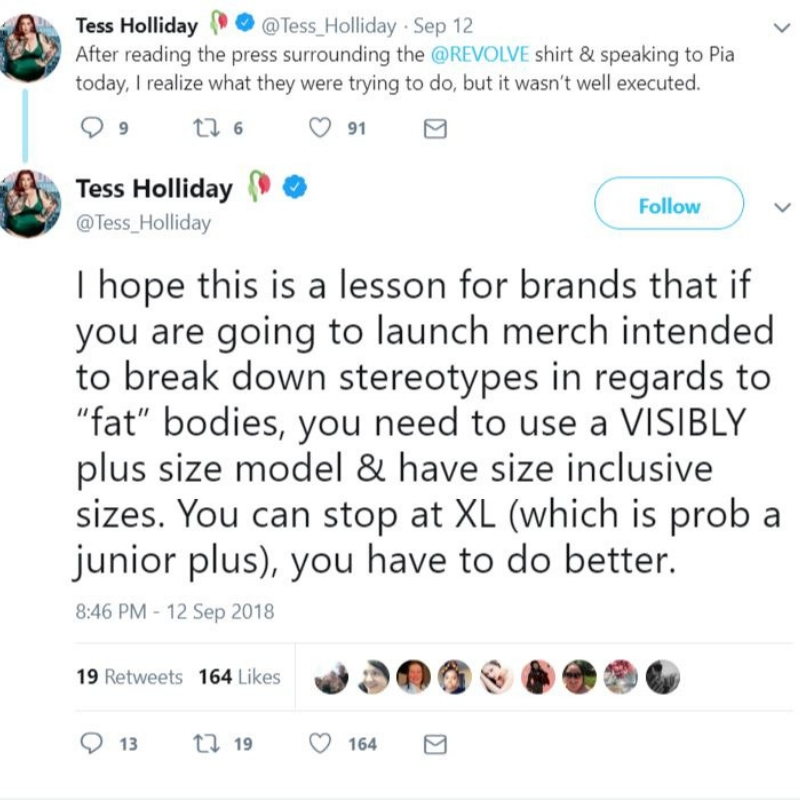
It seems like the experience was something that all involved parties were willing to learn from and rectify in any way possible. Tess Holliday put the important takeaway best in her summation of events: "I hope this is a lesson for brands that if you are going to launch merch intended to break down stereotypes in regards to 'fat' bodies, you need to use a VISIBLY plus-size model & have size inclusive sizes."
Both Revolve and LPA have pulled the line in the wake of the backlash. In addition, both have donated to Girls Write Now, the charity that would have benefited from the line's sales. It's a good start, but it might take more than an act of goodwill and an apology to win back consumers and influencers following this debacle.




